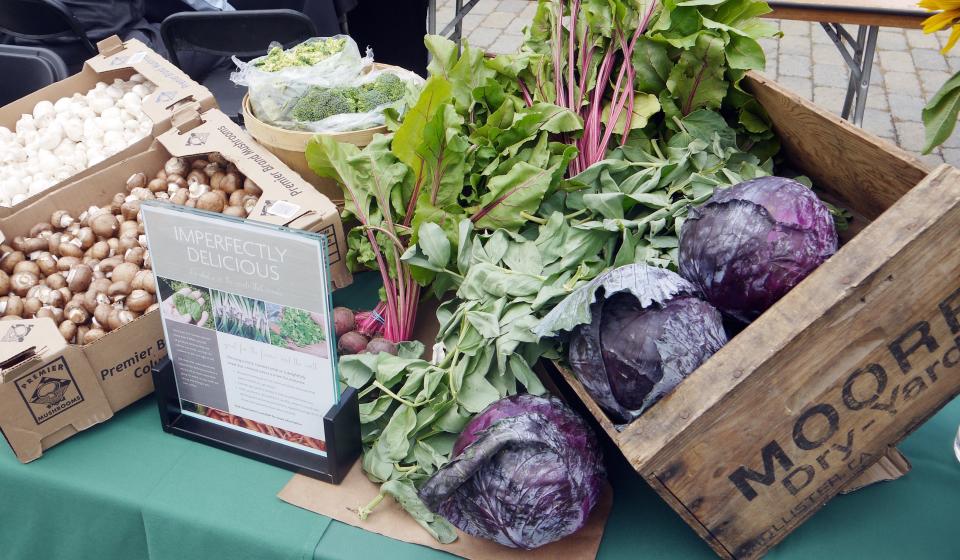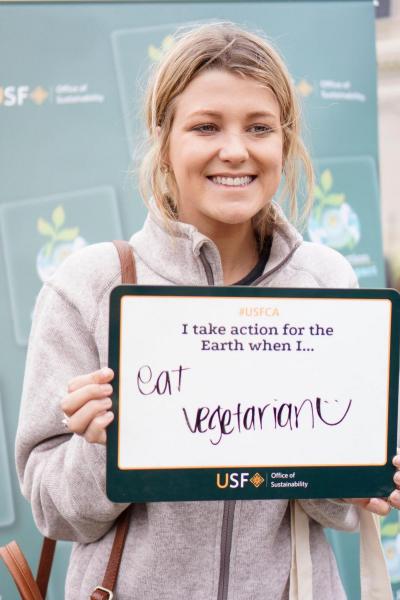Eat Sustainably
Choose Healthy, Local Food
Healthy, local food choices are good for you, your family, local farmers, and the environment. In partnership with Bon Appétit, USF supports local farmers and reduces our carbon footprint by buying more than 20% of the food for our cafeterias from local farms. We reduce food waste by buying healthy and delicious fruits and vegetables that do not meet supermarkets’ strict standards for size and appearance. In addition, the USF partners with local agencies to turn campus-produced food waste into meals for those in need.

USF Sustainability Fact
Herbs, produce, and honey from USF’s Community Garden are sold to Bon Appétit for use in our cafeterias.
Our Impact
The USF Community Garden—located between Lone Mountain and the Education Building—is a living laboratory for students, faculty, and staff interested in sustainable agriculture. The newest addition to the garden is a hive of bees.
The USF chapter of the Food Recovery Network, in partnership with Bon Appétit, recovers up to 400 pounds of food waste each week from USF’s main cafeteria and donates it to partner agencies such as San Francisco Night Ministry and San Francisco City Impact.
Bon Appétit Management Company highlighted its Imperfectly Delicious program, a cutting-edge program that reduces food waste by purchasing cosmetically imperfect produce that are still healthy and delicious.

Call to Action
Eat Less Meat
You can make a difference by eating less meat and replacing it with plants. According to The Guardian, livestock-rearing is a major cause of greenhouse gases, in part because of the methane produced by the animals. A new study found that simply cutting down meat consumption to within accepted health guidelines would make a large dent in greenhouse gases.
Shop at a Local Farmers' Market
The San Francisco Department of Environment publishes a list of the San Francisco Farmers' Markets. Shopping local means your food has traveled less distance, creating a smaller carbon footprint. It also means your food is grown without pesticides. The Environmental Working Group provides a list of the most important fruit and vegetables to purchase organic.
Join a Community-Supported Agriculture Program (CSA)
Community-Supported Agriculture (CSA) allows consumers to buy a share in a farm's production and receive weekly boxes at home or at work of seasonal vegetables, fruit, and other products. See Local Harvest to find a CSA near you.
Volunteer at the USF Community Garden
Learn about sustainable agriculture at the USF Community Garden, a living laboratory for students, faculty, and staff. The garden, located between Lone Mountain and the Education Building, invites all members of the USF and surrounding community to join a weekly Garden Workdays on Thursdays, 11—3 p.m. For more information, contact Melinda Stone.